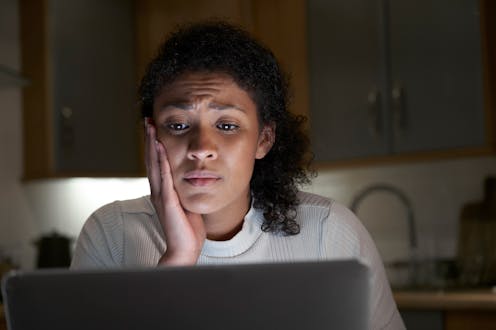5 Australian COVID experts on receiving abuse and trolling amid the pandemic
- Written by Lucy Beaumont, Senior Deputy Section Editor: Health + Medicine

A survey by the Australian Science Media Centre, published today[1], found around 20% of the 50 Australian scientists who responded have received threats of physical or sexual violence when speaking about COVID in the media.
Around 62% said they’d been subjected to trolling.
The Centre also worked with science journal Nature to survey scientists internationally, and found 15% said they’d received death threats, and 22% were subjected to threats of physical or sexual violence.
The Conversation spoke to five researchers in Australia who’ve lent their expertise extensively to media and public discussion around COVID.
Here’s what they said about their experiences of abuse and trolling amid the pandemic.

















